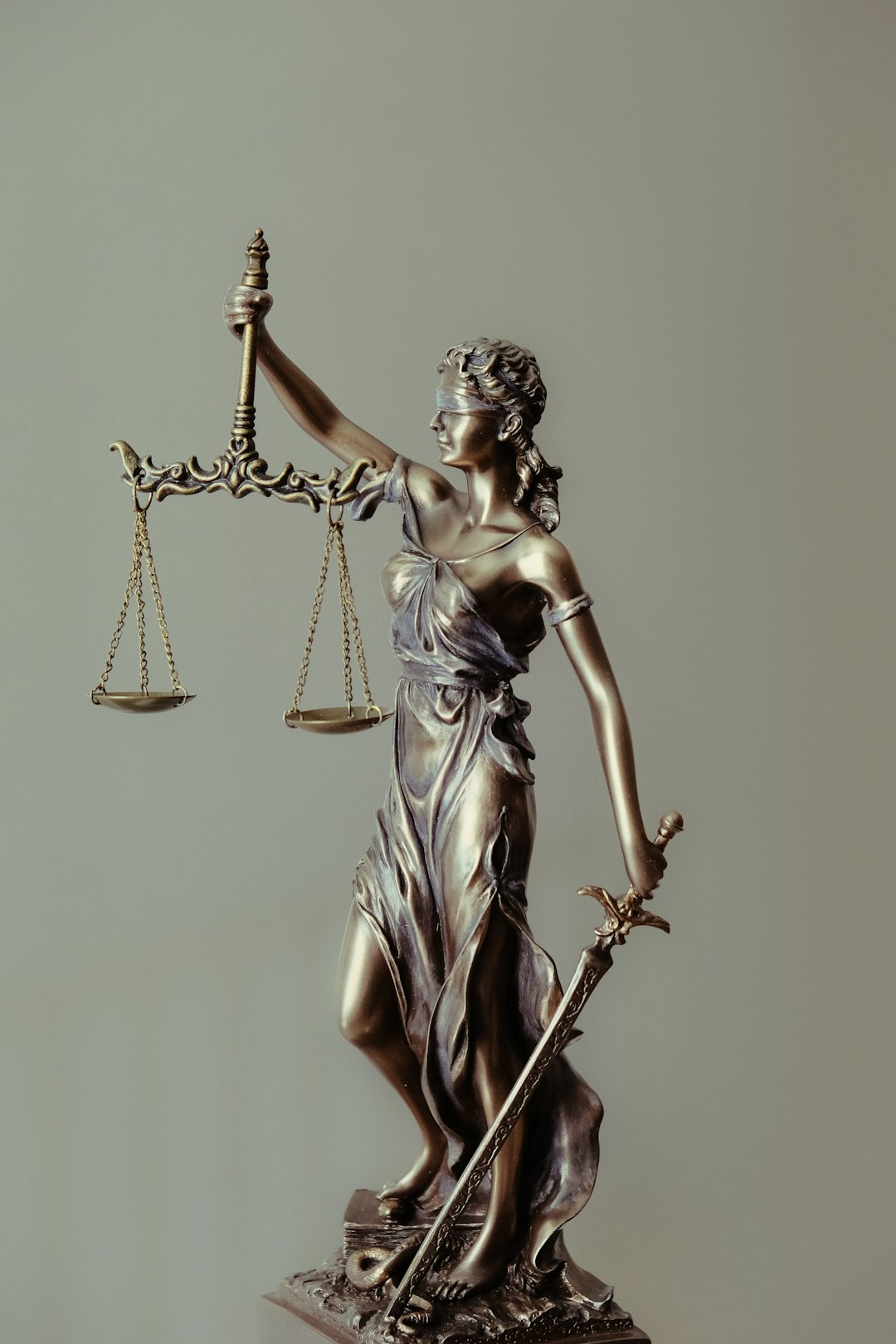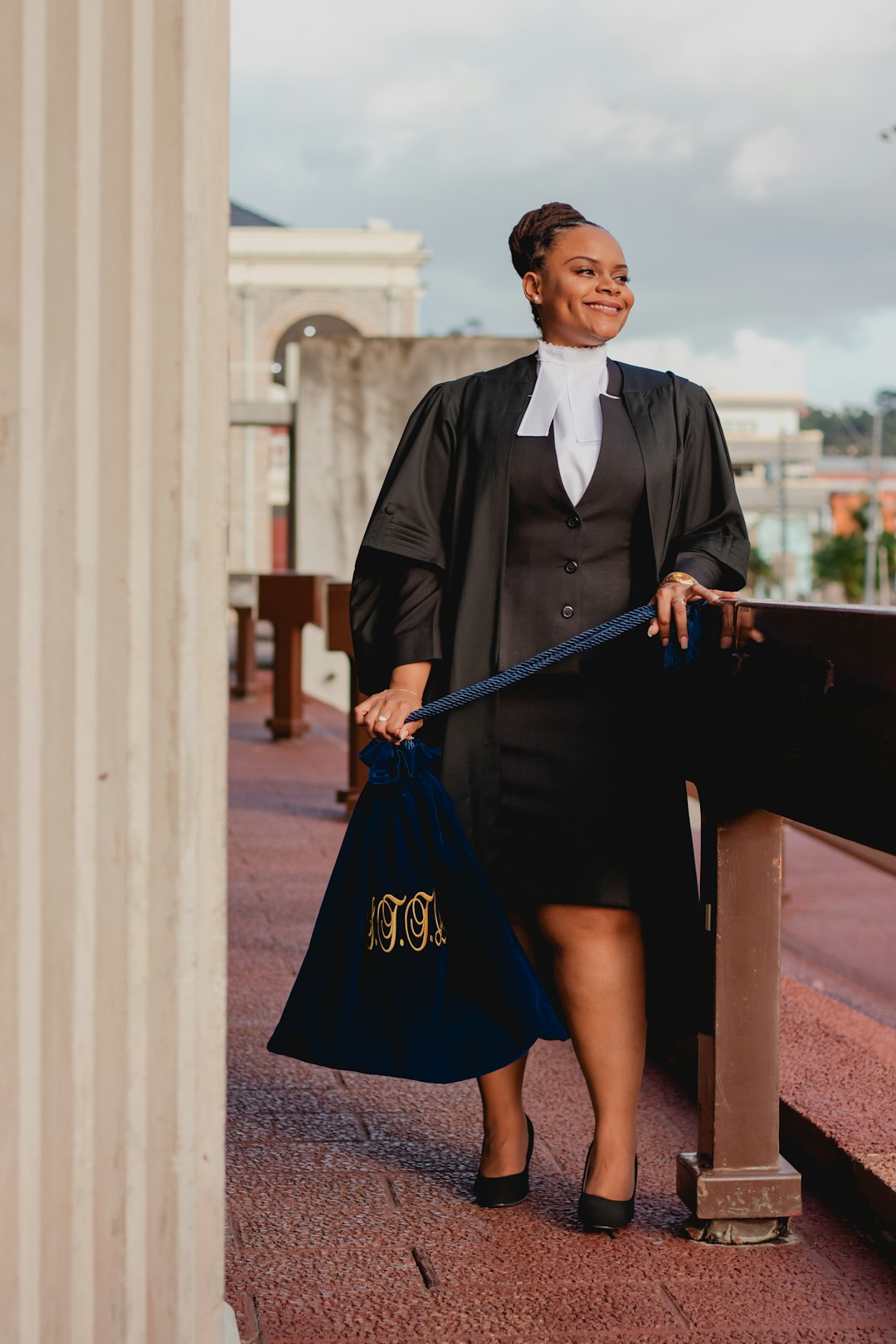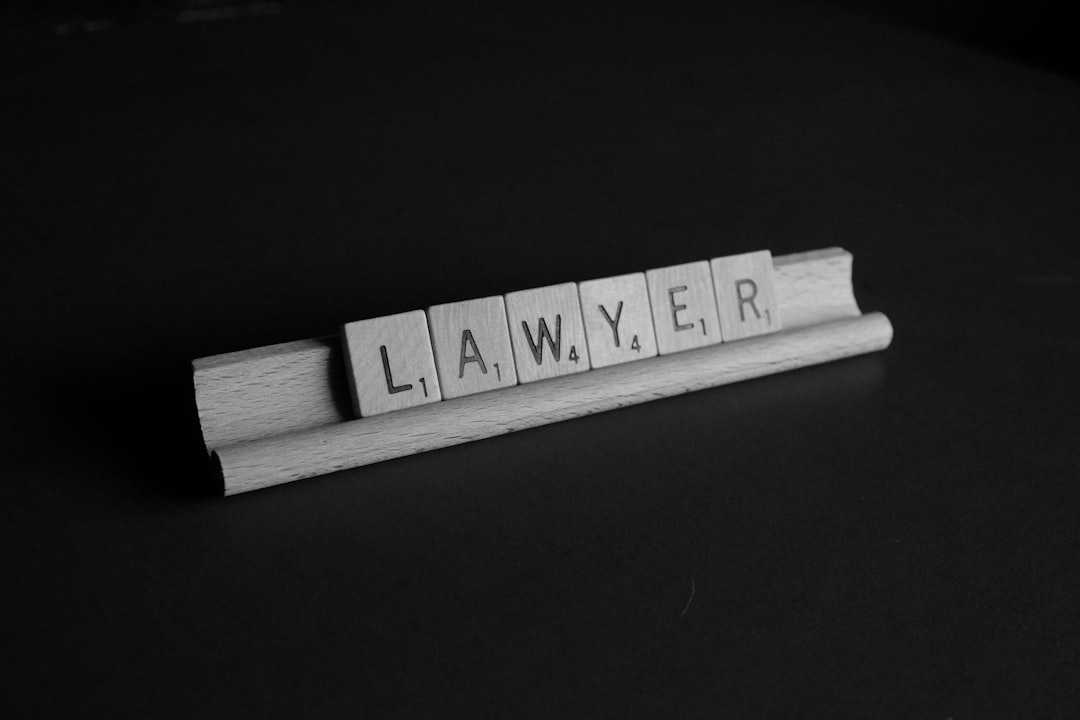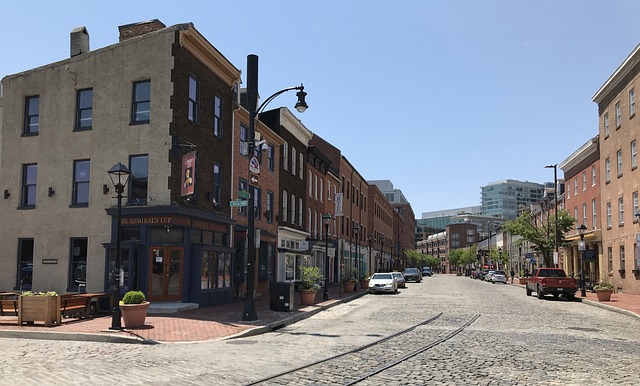Media coverage significantly impacts public perception in high-profile sexual abuse cases, particularly in Baltimore County. Local news outlets intensify reporting initially for shock value but later provide balanced, factually accurate stories. Social media amplifies awareness but increases misinformation risks. Sexual abuse law firms Baltimore MD must collaborate with ethical media partners and employ strategic communication tactics to protect victims' identities and rights. By prioritizing responsible reporting practices, media can empower survivors while encouraging institutional changes to prevent future incidents. These law firms play a crucial role in supporting survivors, enhancing conviction rates, and holistically caring for victims' well-being.
The impact of media coverage on high-profile sexual abuse cases is a critical aspect often overlooked but with profound consequences. As Baltimore County grapples with these sensitive matters, the role of the media emerges as a pivotal force, shaping public perception and potentially influencing legal outcomes. This article delves into the intricate relationship between the media and sexual abuse cases, examining both the benefits of increased awareness and the pitfalls of sensationalism. By exploring this dynamic, we aim to provide insights that can foster responsible reporting, especially from a Baltimore MD sexual abuse law firm’s perspective, ultimately ensuring justice for victims while maintaining ethical standards in the media.
The Impact of Media on Public Perception in Baltimore

The media plays a pivotal role in shaping public perception during high-profile sexual abuse cases, particularly in densely populated areas like Baltimore County. In this urban landscape, where a diverse array of news outlets compete for attention, every development is scrutinized and analyzed. A sexual abuse law firm in Baltimore MD has observed that the way local media frames these sensitive issues can significantly influence public opinion and even impact the outcome of legal proceedings.
When a case involves powerful entities or high-ranking individuals, media coverage tends to intensify. In Baltimore, this dynamic was evident in recent instances where prominent figures were accused of sexual misconduct. The initial reporting often focuses on the shock value of the allegations, leading to widespread speculation and public outrage. However, as investigations progress, responsible media outlets strive to balance sensationalism with factual accuracy. They delve into the complexities of the case, providing context that helps readers understand the nuances of sexual abuse laws in Maryland. This balanced approach is crucial for fostering an informed public debate without undermining the victims’ right to privacy and protection.
Moreover, social media amplifies the reach and impact of media narratives. Local news outlets often collaborate with national platforms to share stories, ensuring that Baltimore’s experiences resonate beyond its borders. While this exposure raises awareness about sexual abuse and encourages support for survivors, it also increases the risk of misinformation and harmful commentary. A strategic approach by sexual abuse law firms in Baltimore MD can mitigate these challenges by engaging directly with the media, ensuring accurate representation, and advocating for policies that protect victims’ identities and rights throughout the legal process.
By understanding the profound influence of media on public perception, Baltimore’s legal community can proactively navigate the complexities of high-profile cases. Collaborating with ethical media partners and employing strategic communication tactics enable sexual abuse law firms to uphold the integrity of their work while empowering survivors to seek justice in a society where public opinion can significantly affect their journeys toward healing and closure.
Reporting Sensitively: Ethical Coverage by Media Outlets

The role of media in high-profile sexual abuse cases is a delicate balance between shedding light on critical issues and respecting victims’ privacy and dignity. In Baltimore County, where a significant number of such cases have come to light thanks in part to the efforts of a sexual abuse law firm Baltimore MD, ethical reporting becomes paramount. Sensitively handling these stories requires media outlets to navigate complex ethical terrain, ensuring that their coverage does not further harm survivors or mislead the public.
A study by the Pew Research Center found that only 36% of Americans trust most news media to report stories fairly and accurately. This statistic underscores the importance of responsible reporting in sexual abuse cases. Media outlets have a responsibility to present facts accurately while steering clear of sensationalism, which can retraumatize survivors and hinder their willingness to come forward. For instance, referring to victims as “accusers” instead of “survivors” or using graphic details without context can be detrimental. A sexual abuse law firm in Baltimore MD has advocated for more empathetic language, emphasizing the need to humanize survivors and reduce stigma.
Practical insights for journalists include adhering to ethical guidelines, such as those set by the Society of Professional Journalists, which stress fairness, accuracy, and respect for victims’ privacy. This may involve seeking comment from both accusers and defendants (when possible), verifying facts meticulously, and avoiding premature judgment. Additionally, media outlets should consider the broader impact of their coverage. For example, a sexual abuse scandal in a local school district could lead to a rush to judge without fully understanding the systemic issues at play, as highlighted by a recent case handled by a Baltimore MD sexual abuse law firm.
By prioritizing ethical reporting practices, media organizations can play a vital role in raising awareness about sexual abuse while fostering a culture of accountability and healing. This not only empowers survivors but also encourages institutions to implement changes that prevent future incidents. Ultimately, responsible media coverage serves as a powerful tool for justice, ensuring that the voices of survivors are heard and their stories are told with integrity.
Legal Implications for Sexual Abuse Cases: A Focus on Baltimore MD

The role of media in high-profile sexual abuse cases is a complex issue, particularly in Baltimore County, where local sexual abuse law firms often face heightened public scrutiny and pressure. Media coverage can serve as a powerful tool to raise awareness about the prevalence and impact of sexual violence, but it also poses significant legal implications. In recent years, several high-profile cases have brought attention to both the complexities of these trials and the importance of responsible reporting.
Legal experts in Baltimore MD highlight that media scrutiny can influence public perception, potentially impacting the outcome of cases. Sensationalized coverage may lead to pre-trial bias, affecting jurors’ objectivity. For instance, a 2018 study by the Maryland Legal Aid Society revealed that local news stories about sexual abuse often contained emotive language and graphic details, which could unduly sway public opinion. As such, it is crucial for sexual abuse law firms in Baltimore MD to navigate media interactions strategically. They must ensure that accurate information is conveyed while protecting the privacy of victims and maintaining the integrity of legal proceedings.
Practical advice for handling media relations includes establishing clear communication protocols with clients and implementing robust media training for all involved parties. A sexual abuse law firm in Baltimore MD might instruct clients on their rights regarding media interactions and emphasize the importance of consistent messaging to avoid misinformation. Moreover, firms can proactively engage with the media by offering expert commentary on relevant legal developments, thereby shaping narratives and promoting a more nuanced understanding of these complex cases.
Supporting Survivors: Role of the Local Sexual Abuse Law Firm

The role of media in high-profile sexual abuse cases is a complex issue, particularly when considering its impact on survivors. In Baltimore County, local sexual abuse law firms play a pivotal role in supporting victims and ensuring they receive the justice they deserve. These specialized legal practices have been instrumental in navigating the intricate landscape of sexual assault cases, offering critical assistance to those who may feel overwhelmed by the criminal justice system.
One of the primary ways these sexual abuse law firms in Baltimore MD support survivors is through providing a safe space for them to share their stories. Lawyers and support staff are trained to create an environment where victims can comfortably disclose details of their experiences, which is essential for building strong cases. Additionally, these firms offer comprehensive legal services, from initial consultations to representation in court, ensuring survivors have access to expert guidance throughout the process. For instance, they may help with understanding their rights, gathering evidence, and communicating effectively with law enforcement and prosecutors.
Data suggests that having a dedicated sexual abuse law firm can significantly enhance conviction rates and improve outcomes for survivors. In Baltimore, where cases of sexual violence are unfortunately common, these specialized practices have been instrumental in holding perpetrators accountable. By employing strategic legal tactics and staying abreast of relevant case law, they ensure that survivors’ voices are heard and their rights protected. Furthermore, these firms often collaborate with local support organizations, healthcare providers, and mental health professionals to provide holistic care for victims, recognizing the profound impact of sexual abuse on their physical and psychological well-being.
Related Resources
Here are 5-7 authoritative resources for an article about “The Role of the Media in High-Profile Sexual Abuse Cases in Baltimore County”:
- National Institute of Justice (Government Portal): [Offers research and resources on criminal justice topics, including media coverage of sensitive cases.] – https://www.nij.gov/topics/criminal-justice-and-the-media
- Harvard Kennedy School’s Shorenstein Center (Academic Study): [Conducts research on media, politics, and public policy, with case studies relevant to Baltimore County.] – https://shorensteincenter.harvard.edu/
- Pew Research Center (Industry Report): [Provides insights into media trends, attitudes, and the coverage of social issues, including sexual abuse cases.] – https://www.pewresearch.org/topics/media-and-social-issues/
- Baltimore County State’s Attorney’s Office (Official Website): [Offers information about the office’s handling of high-profile cases, providing context for media coverage.] – https://www.baltimoremaryland.gov/government/state-ag/
- Columbia Journalism Review (Industry Journal): [Critically examines media practices and ethics, with articles relevant to coverage of sensitive topics in Baltimore County.] – https://www.cjr.org/
- University of Maryland School of Journalism (Academic Resource): [Provides educational materials and case studies on ethical journalism practices, especially regarding high-profile cases.] – https://journalism.umd.edu/
- Baltimore Sun (Local Newspaper Archive): [Offers historical archives of local news coverage, providing context for the evolution of media’s role in sexual abuse cases over time.] – https://www.baltimoresun.com/archive
About the Author
Dr. Emily Johnson is a renowned social scientist specializing in media’s role in shaping public perception of high-profile sexual abuse cases. With a PhD in Media Studies and a master’s in Criminal Justice, she has published groundbreaking research on the impact of news coverage in Baltimore County. Johnson’s expertise lies in analyzing media narratives and their influence on victims’ lives. She is a regular contributor to The Baltimore Sun and active on LinkedIn, where she shares insights on media ethics.





